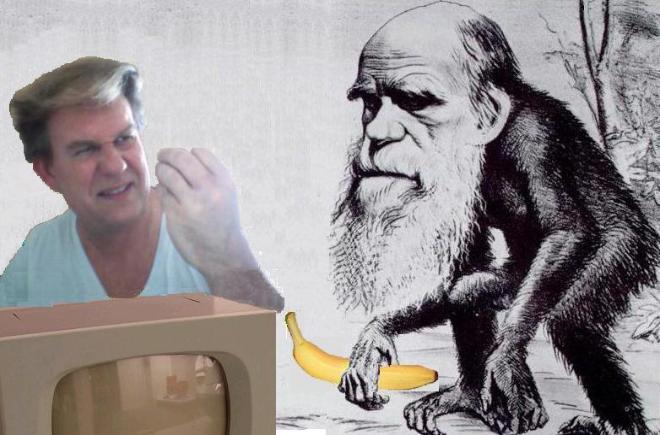| Adapted for the Internet from: Why God Doesn't Exist |
| Brisk business bartering beanies? |
Bartering is one solution that many people think about. The reasoning goes something like this. ‘I know what I would do if
we all run out of jobs. I would look around in my garage and see what I can find that someone might need. Maybe I can
have a yard sale and sell my lawnmower. That should keep me going until the economy picks up again.’ The same
thought may cross the mind of a president of a bankrupt corporation. ‘Mmmh, I can go to the warehouse and see if I can
dispose of some of that leftover inventory. Maybe I can organize a flea market and exchange some of my unsold product
for goods and services.’ And so the process starts all over again. Think of bartering at the corporate level. Isn’t this how
commerce got kick-started a long time ago?
However, we must take these solutions for what they are: misguided urban thinking. Such thoughts are extremely naive
and divorced from reality. Those who think in such terms show just how much they are fooled by Man’s fake economy.
An authentic hunter-gatherer knows better, and more so a street-smart, individual forced to be an urban hunter-gatherer.
You may be ‘lucky’ and find a fool willing to exchange his can of tuna for your gun, but how long will that last? You might
as well use the gun on yourself before the exchange. More than likely, you are the fool thinking that the guy will actually
part with the can of tuna. What guarantees do you have that the other guy won’t wait you out and keep the gun for free?
You can come up to speed quickly on urban hunter-gatherering by performing a couple of experiments at home. Do the
following (always in the presence of a trained relativistic economist). Offer your dog a bone, a $1,000 bill, and a TV set.
Which do you think he will choose? Next, try a hotdog against a cell phone just to satisfy yourself of the universality of
the results.
What you will learn from these experiments is that the only thing of value in a natural economy is food. Would you
perchance give up a bag of chips for a frequent-flier voucher at the subway station? You realize quickly that hunter-
gatherers have no use for plane tickets, more so when pilots fly and mechanics fix airplanes in exchange for salaries.
100% unemployment entails that all public transportation in the world – shipping, trains, buses, taxis, etc. – suddenly
comes to a complete halt. Indeed, full unemploy-ment means that all services stop. Most urbanites provide one kind of
service or another: banking, insurance, health, security, modeling, dry and office cleaning, personal care and hygiene,
fast food, utilities, communications, transportation, tourism, you name it. It all disintegrates over night. The bubble
bursts and you discover that service was a big fat lie. People will not be swapping cars for watches or furs or for a ride
because they’ll be too busy just protecting themselves and staying alive. Not only should you guard every edible item
you can find, but you have to defend it and yourself from others as well.
- “ if money were to be severely devalued in the United States, most people would
have little of value to trade for food (since the farmer can only use so many cars,
etc.)” [1]
Now you know how Neanderthal and Cro-Magnon lived in their heyday.
So let me restate the law as clearly as possible so that even the most idiotic economist understands:
- ‘There is no such thing as bartering in a genuine natural economy
- because the only thing of value is food.’
Lions don’t normally do business with neighboring prides, nor do spiders have a tradition of sharing their 'web-sites'
with kin. A resource-depleted natural economy is a dog eat dog world: everyone’s your enemy. You survive by
cunning and guile, foraging and stealing, and, when all else fails, by killing. It is not Man’s ‘civilized’ artificial laws that
rule the natural economy, but Mother Nature’s.
- ________________________________________________________________________________________
- Last modified 03/01/08
- Copyright © by Nila Gaede 2008


| My priceless TV for a banana? You've got to be kidding me mister! |
Module main page: Rejoinders: the experts voice their objections to the theory
Pages in this module:
- 1. Government relief?
2. This page: Brisk business bartering beanies?
3. Return to subsistence farming?
4. Create armies?
5. Duncan: Let's have a kid, Eve!
- 6. Epilogue
7. Corollary. PETA: How to kill, torture, and sterilize unwanted animals humanely
